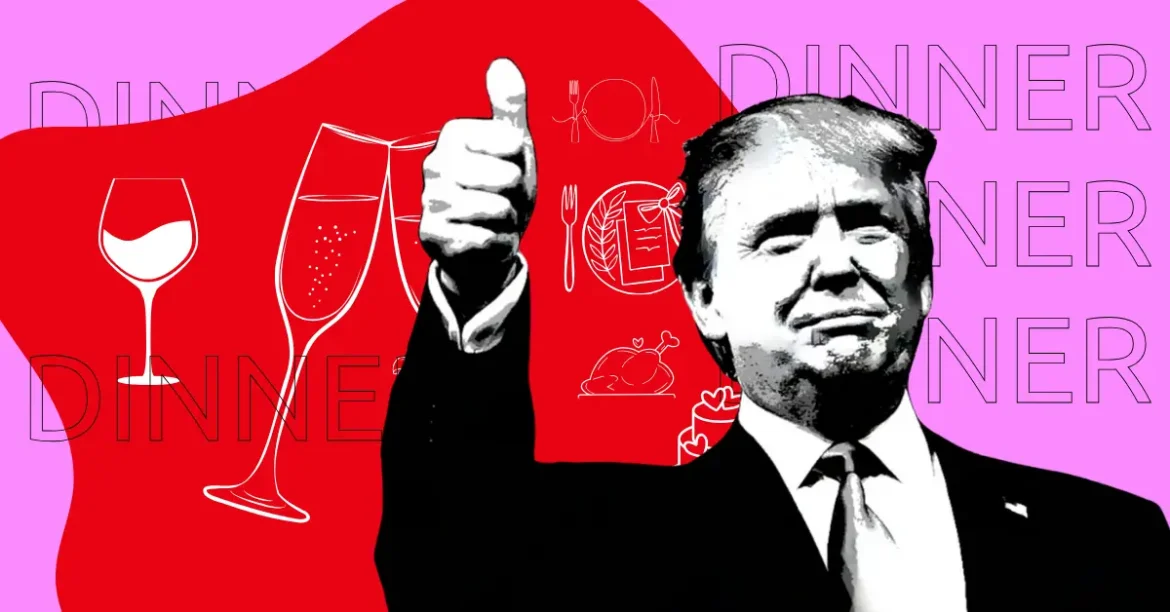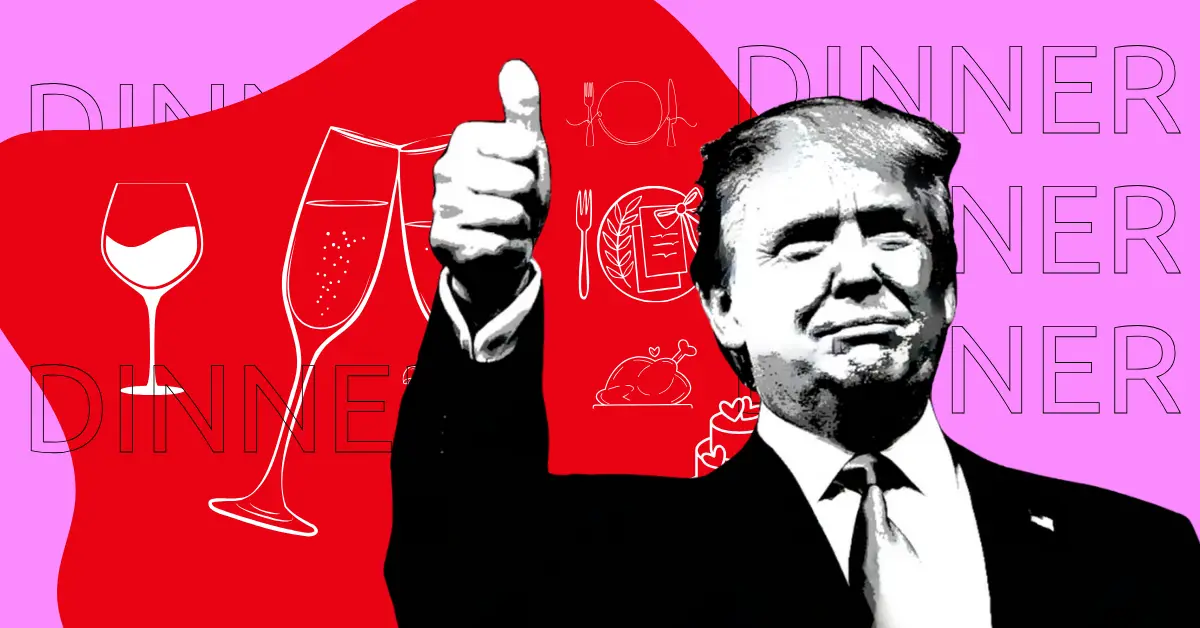Investigation into Trump’s Crypto Dinner: A Comprehensive Analysis
Recent developments have drawn intense scrutiny toward a private dinner hosted by former President Donald Trump, exclusively for investors in his meme-based cryptocurrency, the Official Trump (TRUMP) coin. The dinner, reportedly attended by approximately 220 guests including several foreign nationals, has catalyzed a formal investigation spearheaded by Rep. Jamie Raskin of Maryland, the top Democrat on the House Judiciary Committee. This report explores the background, key issues, and implications surrounding this event and the ensuing inquiry.
Background: The Controversial Crypto Gala
The event in question was a black-tie dinner held at Trump National Golf Club near Washington, D.C. It constituted a gathering of the biggest buyers of Trump’s memecoin, a digital currency tied to the former president’s brand and political persona. Attendees purchased access via their cryptocurrency holdings, with some spending millions of dollars.
Among the notable guests was Justin Sun, a Chinese-born cryptocurrency billionaire and founder of Tron, who alone bought $20 million in Trump coins, making him the largest purchaser. Sun’s involvement also extends to a $75 million investment in the Trump family’s World Liberty Financial venture, another cryptocurrency enterprise. Other attendees included a lawyer associated with Supreme Court Justice Clarence Thomas and former sports celebrities, highlighting the broad and unusual mix of participants.
The Core Concerns: Foreign Influence and Transparency
Rep. Jamie Raskin’s investigation focuses on several critical aspects:
1. Identity of Attendees and Transparency
Despite the high-profile nature of the event, the White House and Trump’s team have been reticent about releasing the full guest list. Raskin issued formal demands for disclosure of all attendees, citing over 200 individuals, some confirmed as foreign nationals, who purchased their way into the dinner through TRUMP coins. This raises questions about the transparency of the event and the visibility of foreign actors attempting to gain access to a sitting U.S. president through crypto-backed means.
2. Constitutional and Legal Implications
One of the most significant issues brought forth by Raskin and other critics is the potential violation of U.S. laws prohibiting foreign nationals from directly or indirectly donating to American political campaigns or buying access to government officials. The appearance of a Chinese mogul and other foreign national participants underlines concerns about whether these crypto transactions could be construed as illegal contributions or attempts at influence peddling.
3. Source of Funds and Financial Integrity
Raskin also demands clarity on the origin of funds used to purchase the $TRUMP coins. Tracing these sources is vital to ensuring that no illicit money or foreign interference is masked behind complex cryptocurrency transactions. This aspect touches on broader concerns regarding money laundering, regulatory oversight, and the opaque nature of certain digital assets.
4. Links to Broader Crypto Policy
The dinner coincided with heightened attention on the cryptocurrency sector’s regulatory landscape. Notably, the event took place amidst ongoing debates in Washington regarding stablecoin legislation and the government’s evolving stance on digital currencies. The gala exposed the political dimension of cryptocurrency, reflecting how digital assets can be leveraged for access and influence, potentially shaping policy priorities.
Details and Revelations from Reporting
Several journalistic outlets obtained partial guest lists and insider accounts, revealing:
– Attendance of international investors and foreign crypto billionaires.
– Reports of lax security arrangements despite the presence of many high-net-worth individuals and sensitive foreign nationals.
– Some attendees expressed disappointment in the event’s organization, citing underwhelming food and limited opportunity to engage directly with Trump.
– Political backlash emerged following the event, with chants of “shame” greeting some guests at the venue, signaling broader public unease about the commodification of political access via cryptocurrency.
Broader Implications and Potential Fallout
This investigation underscores a pivotal moment where cryptocurrency intersects with politics in potentially unprecedented ways. It raises urgent questions about:
– The ethical boundaries of fundraising: Using a branded memecoin as a vehicle for political fundraising or influence acquisition challenges traditional campaign finance norms.
– Foreign interference vulnerabilities: The dinner exposes gaps in safeguards against foreign actors leveraging emerging financial technologies to circumvent restrictions.
– Regulatory adaptation: The unfolding controversy could accelerate legislative and regulatory actions targeting crypto-based political finance and digital tokens.
– Public trust and political capital: The perception of selling presidential access to the highest bidder—especially foreign investors—could erode public confidence in political integrity and governance.
Conclusion: Demanding Accountability in a Digital Age
The investigation led by Rep. Jamie Raskin into President Trump’s crypto dinner acts as a lens revealing the complex interplay between cryptocurrency, political influence, and national security concerns. As digital assets redefine how value and access can be exchanged, this episode serves as a cautionary tale emphasizing transparency, legal compliance, and the vigilance necessary to protect democratic processes. Ultimately, the outcome of this inquiry may set precedent for how political officials and their affiliates engage with the burgeoning crypto ecosystem, prompting a reevaluation of regulatory frameworks suited for the digital age.





